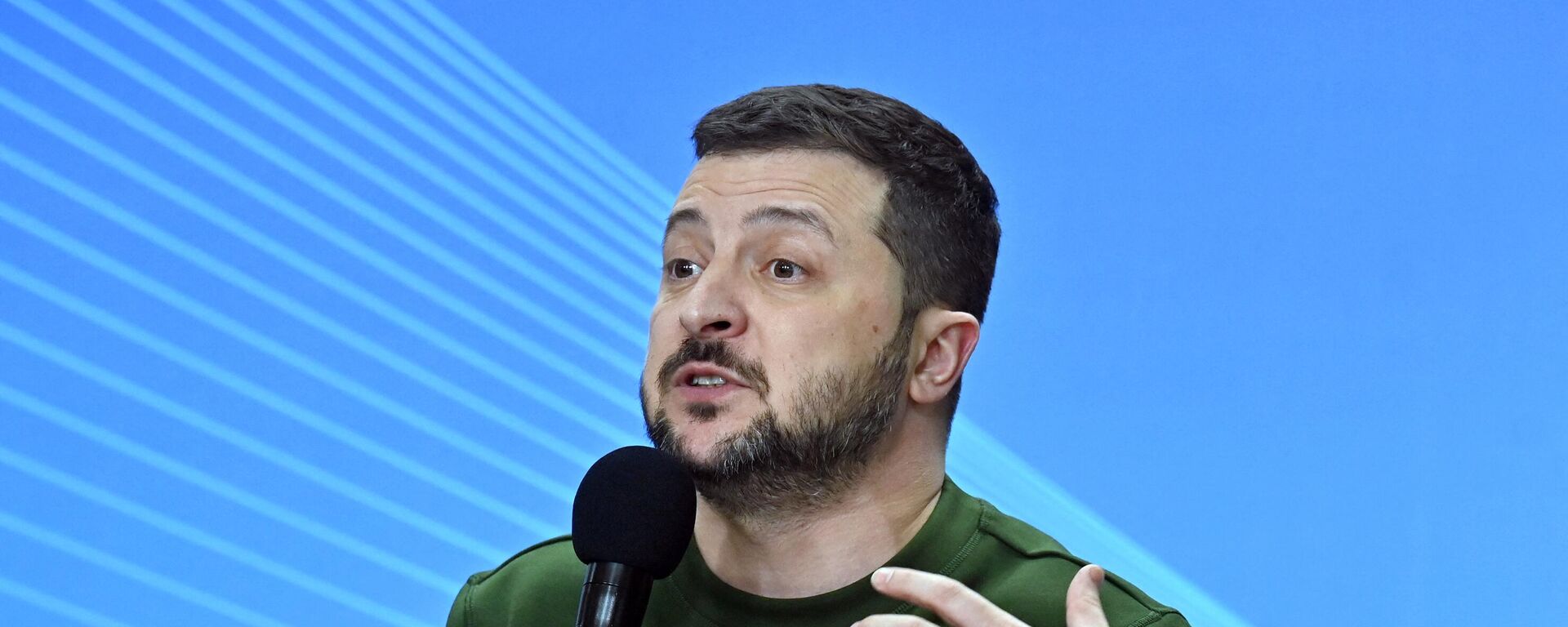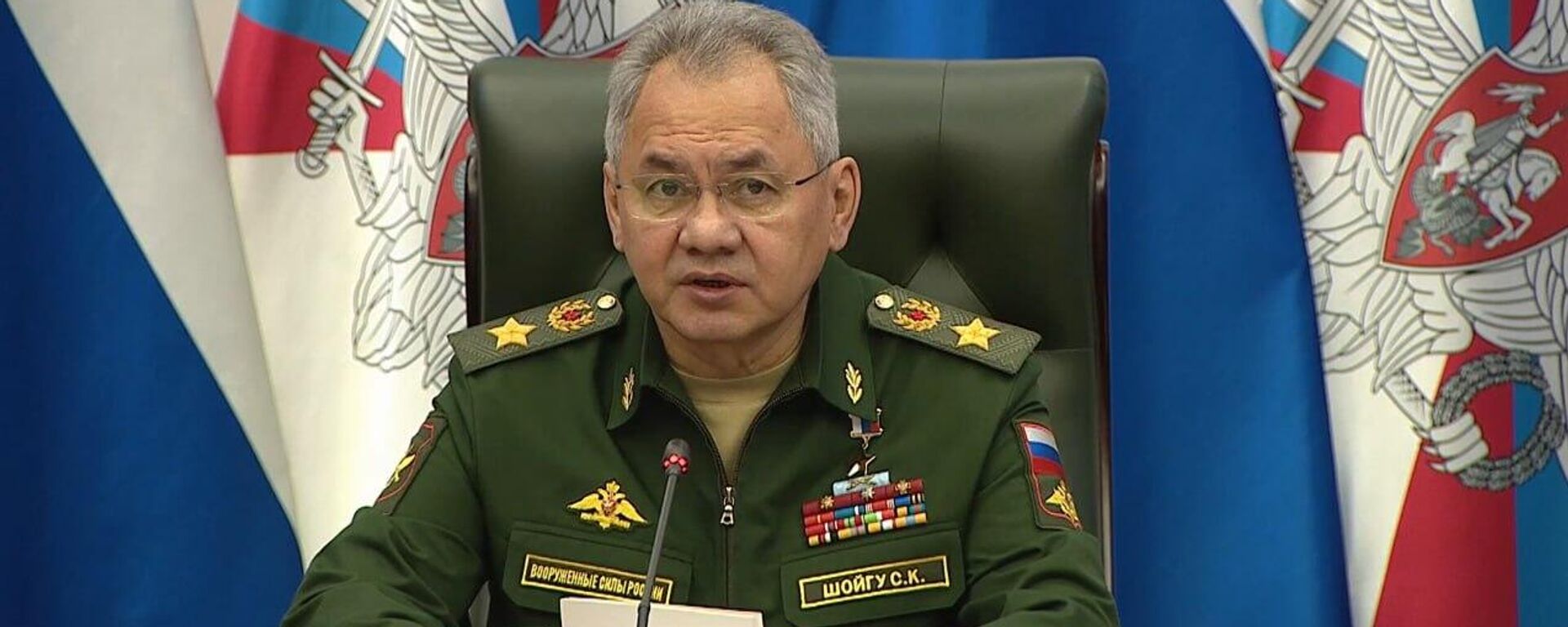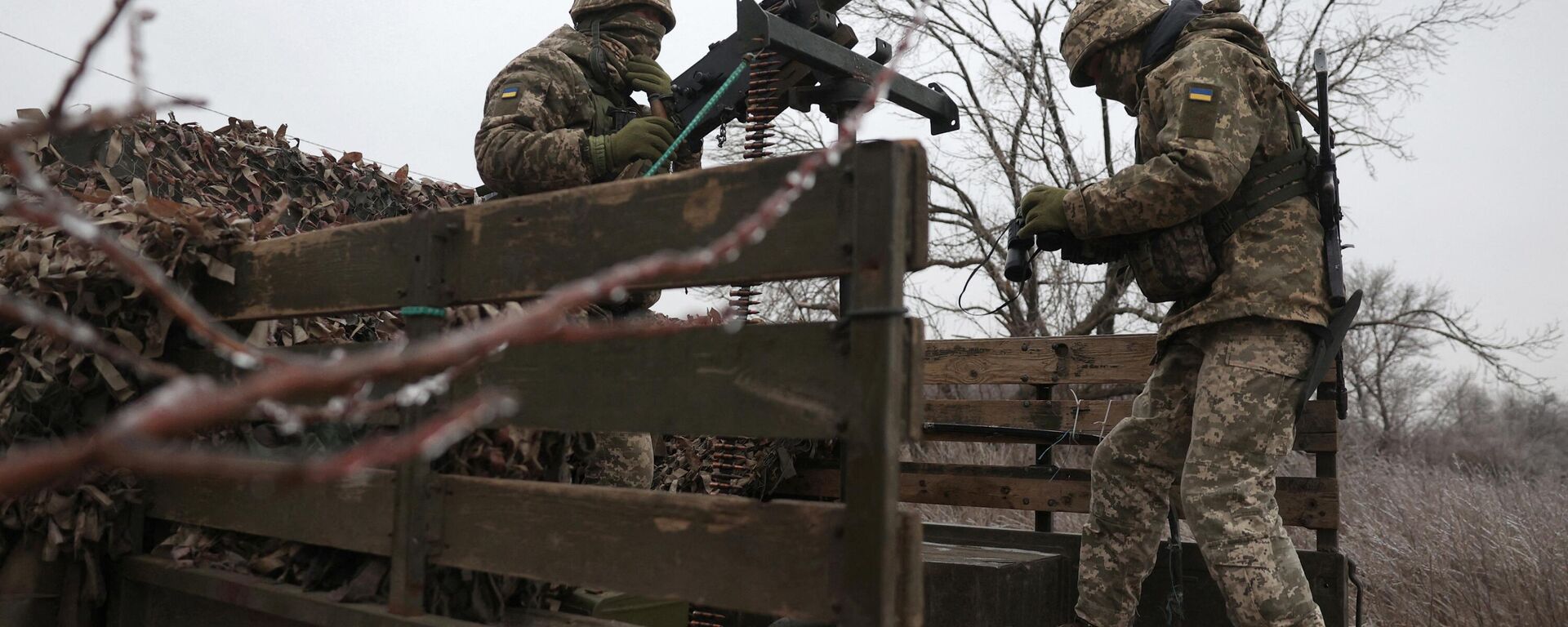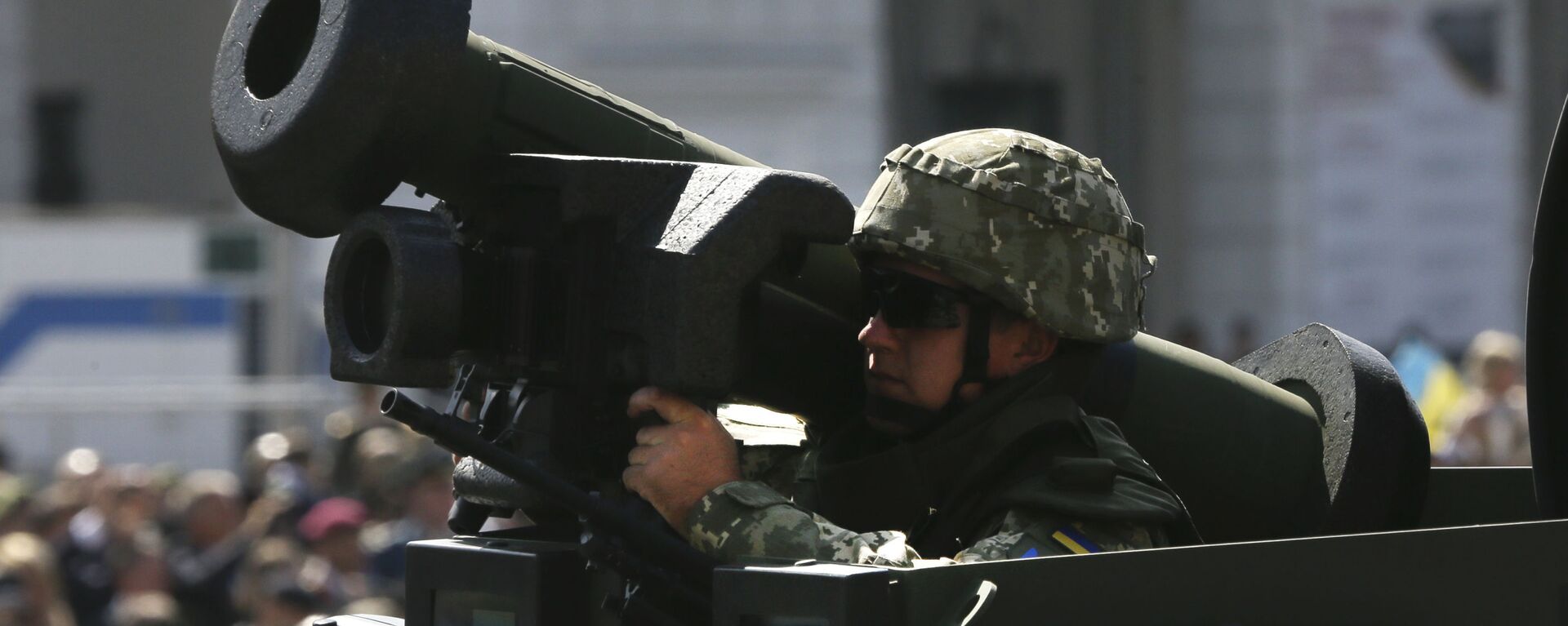DC Think-Tank: West Cynically Sacrifice Ukrainian Lives in 'Pretty Good Deal'

© Sputnik / Stanislav Krasilnikov
/ Subscribe
Western supporters of continuing the Ukraine conflict until the bitter end demonstrate remarkable cynicism about human carnage involved, writes Washington DC-based think tank the Quincy Institute for Responsible Statecraft.
Western mainstream media pundits present the Ukraine conflict as a rare chance to hurt Russia — without putting US and NATO boots on the ground.
The Quincy Institute (QI) names prominent Western politicians and media figures who are "in favor of an open-ended, prolonged war and most against the kinds of peace negotiations which could shorten it."
But the QI stopped short of pointing out that the spike in such rhetoric came after Western politicians derailed the draft 2022 Russo-Ukrainian peace agreement brokered in Istanbul just a month after the Russian special military operation began.
Ukrainian politician Davyd Arakhamia, who headed the Ukrainian delegation during the negotiations with Russia in Belarus and Türkiye in 2022, said in November 2023 that then-British prime minister Boris Johnson persuaded Kiev to pull out of the peace plan at the last minute.
"When we returned from Istanbul, Boris Johnson came to Kiev and said that we would not sign anything with [the Russians] at all. And [said] 'let’s just continue fighting'," Arakhamia said.
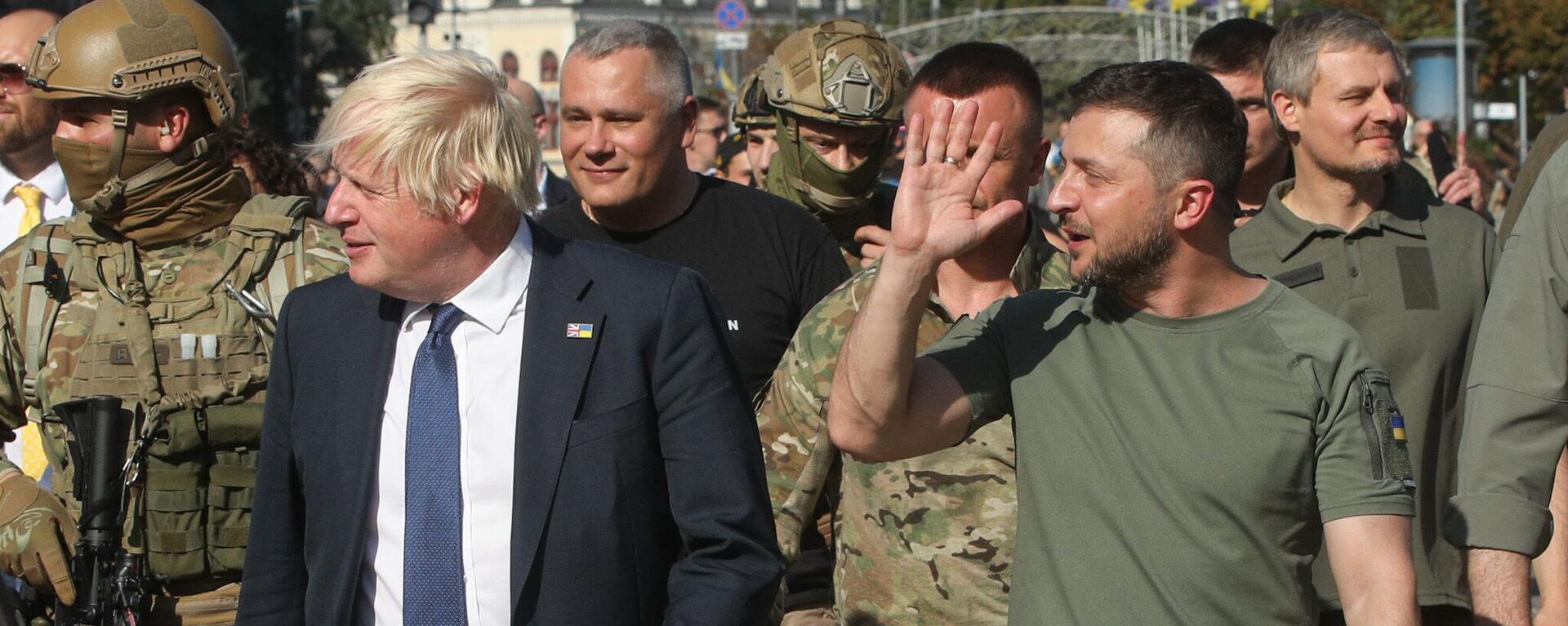
26 November 2023, 16:19 GMT
Western politicians have been equally bellicose. Josep Borrell, the European Union's unelected commissioner for foreign affairs tweeted in April 2022 that "this war will be won on the battlefield." US Secretary of Defense Lloyd Austin echoed Borrell the same month that Washington wanted to see "Russia weakened to the degree that it can’t do the kinds of things that it has done" in launching the special military operation.
Since then, US and European leaders have repeatedly beat the drum for war and rejected peace overtures.
"Four months into this thing, I like the structural path we're on," stated US Senator Lindsay Graham at the beginning of the conflict, QI recalled. Later the senator added that the US proxy war in Ukraine was "the best money we're ever spent."
In August 2023, Democratic Senator Richard Blumenthal argued in an op-ed that "[Americans] should be satisfied that we’re getting our money’s worth on our Ukraine investment," as "for less than three percent of our nation’s military budget, we’ve enabled Ukraine to degrade Russia’s military strength by half," and "all without a single American service woman or man injured or lost."
"It is a relatively modest amount that we are contributing without being asked to risk life and limb," Republican Mississippi Senator Roger Wicker told the Associated Press in February 2023. "The Ukrainians are willing to fight the fight for us if the West will give them the provisions. It's a pretty good deal."
"No Americans are getting killed in Ukraine. We’re rebuilding our industrial base. The Ukrainians are destroying the army of one of our biggest rivals. I have a hard time finding anything wrong with that," Republican Senate Minority Leader Mitch McConnell told the US press four months ago.
"Aiding Ukraine, giving the money to Ukraine is the cheapest possible way for the US to enhance its security," claimed Zanny Minton Beddoes, editor-in-chief of British magazine the Economist, on US broadcaster Jon Stewart's Daily Show recently. "The fighting is being done by the Ukrainians, they’re the people who are being killed."
Russian Defense Minister Sergey Shoigu announced on Tuesday that Ukraine has lost more than 444,000 soldiers killed and wounded since the beginning of the special military operation in 2022.
"What’s distasteful about this is not just the flippant way it treats the unimaginable scale of loss of life, permanent disability and emerging long-term crises being experienced by Ukrainians — as mere abacus beads to be moved around in a cost-benefit analysis centered on the United States and its NATO allies," wrote the DC think-tank about the West's assessment of the conflict.
The QI argued that far from being "willing," "determined" and ready to "fight to the last person," many Ukrainians have demonstrated that they do not want to risk their lives in the conflict.
The think-tank stressed that many draft-aged Ukrainian men rushed abroad to flee the conflict, while others bribed Military Medical Commission (MMC) officials to rule them unfit for military service and many hid out to dodge enlistment officers. Ukrainians have signed petitions against aggressive conscription practices.
To throw more Ukrainians into the battle, the Kiev regime authorized several waves of forced mobilization. It has asked the EU to extradite draft-dodgers, ordered a full review of all mobilization exemptions granted by Ukraine's MMCs starting from February 24, 2022 and most recently proposed a new mobilization law lowering the draft age, creating a central database of potential recruits and mobilizing older and less healthy men.
"It increasingly appears that many of those who are most enthusiastic to keep the war going and avoid a negotiated end aren’t, as we keep being told, the Ukrainians who are most likely to be killed or wounded in the fighting," argues the think-tank's contributor Branko Marcetic. "Instead they are politicians and commentators far, far away from the front line in other countries who view its attendant death and destruction as akin to a board game — or, in their words, as a 'good deal,' a 'bargain,' and a satisfying 'investment' for their own countries."
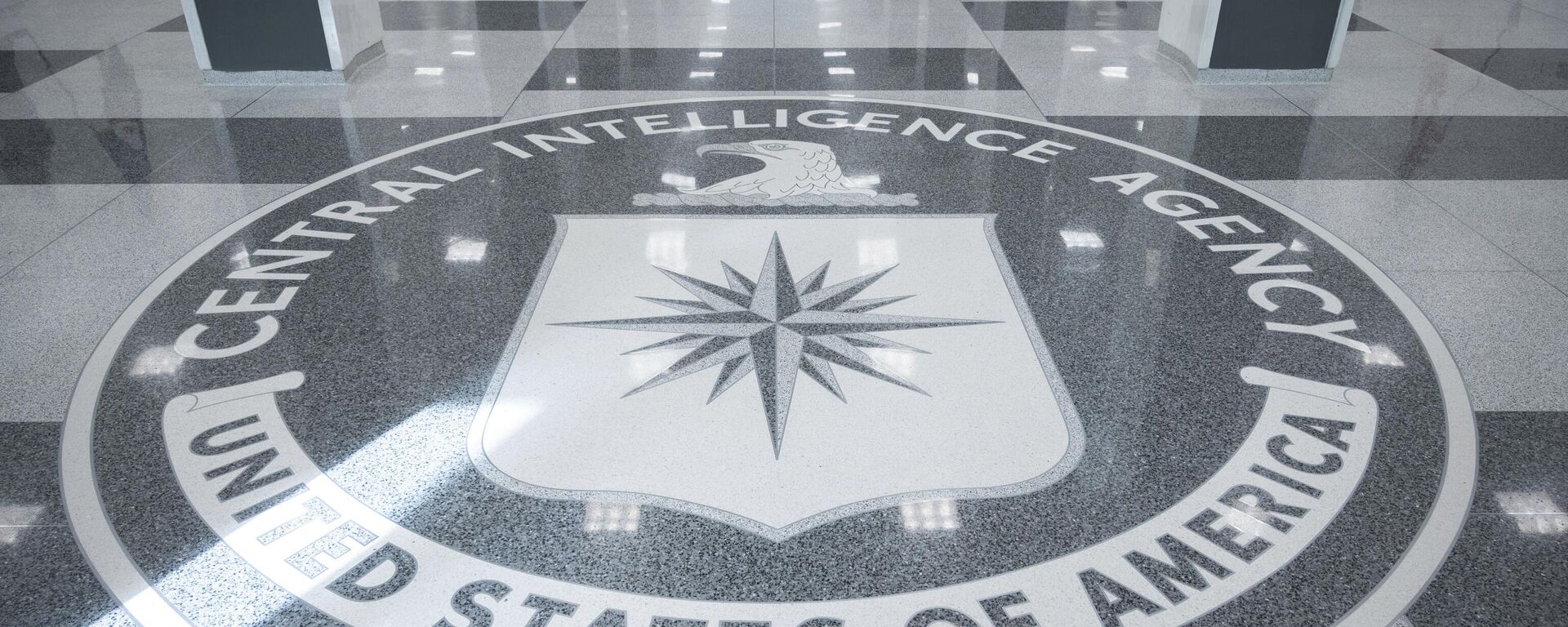
25 February 2024, 18:36 GMT
A recent New York Times report of a network of 12 secret CIA bases ste up along Ukraine's border with Russia in the wake of the 2014 Euromaidan coup suggests that the proxy war plan has long been in the making.
Speaking to Sputnik on February 21, former CIA analyst Larry Johnson said Ukraine was immediately turned into a US military proxy after the coup.
"Prior to 2014, you didn't get a lot of NATO exercises, featuring Ukraine. After 2014 Ukraine, even though it was not a formal member of NATO, was regularly featured in these joint annual exercises and that meant that Ukraine then became a proxy for a Cold War," Johnson said. "It became a proxy for the West to fight against Russia. And I think that's why they were slowly building up Ukraine."
"What it boils down to is that the West had simply decided that they wanted to take Russia," Johnson continued. "At the core of it, they were looking for a long term strategy to isolate Russia. And the key to this was to get Ukraine into the western camp, to bring Ukraine into NATO, to bring Ukraine into the EU, and therefore to completely isolate, at least they thought they could isolate Russia. Because I think at least there was some recognition in some of the government circles that Russia has enormous wealth, natural resources. And it's better for us to have it than for Russia to have it. I think it was the attitude."

